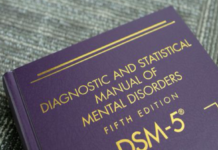One day, after very many preceding days, I decided to stop functioning. I lay in my mother’s bed, which was sodden with hours of tears, and decided to take leave of life. There’s a bit of the brain that scientists call executive functioning, which I think refers to making decisions, and acting on desires, and planning ahead. Well, I did my best to turn it off. I chose to have what my mother called a breakdown. I decided to check out because it was the only way I could make my family realise I needed different help. And I needed the peace of surrendering autonomy. I needed not to think about what to eat, or wear, or do with my day, or what happened yesterday, or two years ago.
But that’s not the whole story. Six weeks earlier, I had started seeing a psychologist. I had been unhappy for years. And then, at 18, in Australia, I was raped. I managed to push it down somewhere deep inside, but when I started university, my centre couldn’t hold. I knew something was breaking. So my mother tracked down the psychologist I had seen briefly in my last year at school, and arranged an appointment with his colleague in London.
Before we met, I emailed him, saying I needed to talk about the past.
He replied:
If you wanted to look at your family history, we could adopt a Schema Focus Therapy approach, which takes all the best bits of CBT but uses them to understand a person’s development through childhood/parenting/experiences. You can get a feel for this approach at www.schematherapy.com. It’s a more modern approach than psychoanalysis, which involves a long-term commitment and some very different ways of working.
In our first session, he gave me a 12-page questionnaire. It asked me to answer 205 questions, with a score from 1 to 6. 1 meant completely untrue of me, while 6 describes me perfectly. There were further instructions:
When you are not sure, base your answer on what you emotionally feel, not on what you think to be true. If you desire, reword the statement so that the statement would be even more true of you. Then choose the highest rating from 1 to 6 that describes you (including your revisions).
The questionnaire begins:
1._____ People have not been there to meet my emotional needs.
2._____ I haven’t gotten love and attention.
3._____ For the most part, I haven’t had someone to depend on for advice and emotional support.
4._____ Most of the time, I haven’t had someone to nurture me,sharehim/herself with me, or care deeply about everything that happens to me.
5._____ For much of my life, I haven’t had someone who wanted to get close to me and spend a lot of time with me.
6._____ In general, people have not been there to give me warmth, holding, and affection.
7._____ For much of my life, I haven’t felt that I am special to someone.
8._____ For the most part, I have not had someone who really listens to me, understands me, or is tuned into my true needs and feelings.
And so on, until:
185._____ I feel that what I have to offer is of greater value than the contributions of others.
186._____ I usually put my needs ahead of the needs of others.
187._____ I often find that I am so involved in my own priorities that I don’t have time to give to friends or family.
188._____ People often tell me I am very controlling about the ways things are done.
189._____ I get very irritated when people won’t do what I ask of them.
190._____ I can’t tolerate other people telling me what to do.
191._____ I have great difficulty getting myself to stop drinking, smoking, overeating, or other problem behaviours.
192._____ I can’t seem to discipline myself to complete routine or boring tasks.
193._____OftenI allow myself to carry through on impulses and express emotions that get me into trouble or hurt other people.
194._____ If I can’t reach a goal, I become easily frustrated and give up.
195._____ I have a very difficult time sacrificing immediate gratification to achieve a long-range goal.
196._____It often happens that, once I start to feel angry, I just can’t control it.
197._____ I tend to overdo things, even though I know they are bad for me.
198._____ I get bored very easily.
199._____When tasks become difficult, I usually cannot persevere and complete them.
200._____ I can’t concentrate on anything for too long.
201._____ I can’t force myself to do things I don’t enjoy, even when I know it’s for my own good.
202._____ I lose my temper at the slightest offence.
203._____ I have rarely been able to stick to my resolutions.
204._____ I can almost never hold back from showing people how I really feel, no matter what the cost may be.
205._____ I often do things impulsively that I later regret.
The psychologist also handed me the 1998 book, Reinventing Your Life: the bestselling breakthrough programme to end negative behaviour and feel great by Young and Klosko.
Well, I took it all in. I read the book. I scoured the website, and its list of 18 ‘maladaptive schemas’. (These include defectiveness; alienation; incompetence; and failure to achieve.) I finished the questionnaire. By the last answer, I was terrified, and cracking. I was clearly incredibly damaged. Perhaps I was broken beyond repair? The questionnaire had seemed to find every last way to suggest something missing, or dud, or wrong. How was I even getting out of bed every day when all these things were true? How could I think I deserved time, and attention, and friendship, when I was clearly a shattered, maladaptive human being? There was only one way to deal with the dreadful truth of my unfitness for survival that this questionnaire had revealed. I was going to have to switch off completely, until somebody could repair me. I was going to have to become a rag doll, and submit to any intervention required. I was reeling at my inadequacy, my brokenness, the ugliness of my insides.
At the next £120 session in Harley Street, I gave the psychologist the completed questionnaire. I told him about my trouble with food. Either I couldn’t stop eating, or I didn’t want to eat. He advised drawing up an eating plan, and sticking to it, and getting my mother to take charge of it, if necessary. He promised an appointment with his nutritionist colleague. He told me to plan my days, hour by hour. After the session, he emailed.
I thought you were brave to tackle all those difficult feelings – I felt quite optimistic that we will be able to sort through them. I hope you are well and tapping up all those friends who you haven’t spoken to in a while!
I was terrified, and hurting. I wanted to be alone, and watch TV, and feel safe. But if a psychologist was saying I needed to contact friends, then surely I should? So, I texted an old friend from boarding school. It had been a dysfunctional relationship all along — she wasn’t interested in me, but in having a party companion. This made it very easy to fake being fine in her presence. So I did. I dressed up, and went out, and got drunk. When my friend rang for cocaine, I took lines and lines. I had followed the psychologist’s behavioural advice against my instinct, and called a friend I could hide my vulnerability with, and it had ended in cocaine. This further proved how damaged I was. If I couldn’t follow the psychologist’s advice, do what he told me to do, in a healthy way, what hope was there?
I deteriorated fast. I moved out of my university halls in London, back to my mother’s house in Oxford. I left each session with the psychologist feeling more unredeemable than before. He asked me to think harder, but also not to listen to my thoughts. He asked me to exercise, but also to rest. He asked me to contact old friends, but I didn’t like them. He asked me not to take essays so seriously, but reading for my assignments brought the only respite. As he tried to rectify my maladaptive self, some essential faith in my own power of renewal and survival failed. I was so fucked up, his questionnaire had proved — what was the point in trying? I started to give up. And then, seduced by the peace of letting myself down from obligations — first, essay deadlines, then showering, then getting up at all — I felt like I finally found the quiet mind he was aiming for. If wrong thoughts were the cause of my unhappiness, well then why bother having thoughts at all? Much better to be done with them. Then at least I don’t have to sit in his room and report them all at the next session, like a sinner in confession. I can say, I feel calm, and be telling the truth. So I tried as hard as I could to stop thinking.
Next to my bed in my mother’s house were floor-to-ceiling bookshelves. They contained the history of my reading, from Joan Aiken to John Milton to Virginia Woolf. The spines taunted me, knowing I’d never be able to get their words out of my head, to stop thinking about Mrs Dalloway’s flowers, or Blake and the Devil’s party. My father had recently given me a Folio Society edition of the complete Shakespeare. It was huge, and thick, and burgundy, too big for the shelves. It was propped up against my bedside table, while I found somewhere to put it. One morning, I tripped over it, stubbing my toe when its heft refused to budge. I hated him, Shakespeare, for making me think, and making me hope that one day, I could write too. Because damaged as I was, my words clearly deserved no place on a page. Maybe to truly win at this psychologist’s game, I had to get rid of my bookshelves too.
Another email between sessions arrived:
I hope you’re feeling OK today – it seemed like you had become a bit overwhelmed yesterday. Get that daily planner going – especially those regular meals!
Hell, I wasn’t going to win, was I? I wasn’t going to undo the damage. I wasn’t going to unbreak. Better to give up entirely. So I did. I lay in my mother’s bed, and said, I need to stop. She did what I hoped would be the consequence, which was to call my father, and brother, and sister, and say, Charlotte’s having a breakdown. Now they might sit up and get me some different help. I still had an appointment with the psychologist the following morning, in London. It was too late to cancel without paying. So at 7am, my mother drove us down from Oxford, the December morning still dark. She came to see him with me, and told him she didn’t think he really understood how unhappy I was. He put on his smarm, and assured her he did. Afterwards, we had breakfast at the John Lewis cafe behind Oxford Street. It was dismal, and empty. The scrambled eggs had been cooked too long. When the waiter brought the bill, he only charged for two coffees, shaking his head at our unfinished plates in apology.
I had a university lecture at 12pm. I hadn’t been planning to go. But, maybe I could? My hunger to know was still alive. I loved the lectures. I loved sitting there, being talked to about text. This breakdown of mine clearly wasn’t lasting very long. I was torn. But hunger won. I went.
I never visited that psychologist again. I fear for who else was abused of their trust in him, and his schemas. It was incredibly unprofessional to slur psychoanalysis as less modern, and put me off its long-term commitment, before even having met me, and without any idea of the trauma I had been through. I don’t think there is anything more modern than the phenomenological, enquiring nature of psychoanalysis. Certainly, the theocratic idea of positive thought that cognitive behavioural therapy (CBT) takes is centuries behind, if we’re going to start mapping therapeutic approaches in relation to modernity and the history of thought.
There were to be another nine years of trusting, and paying, the wrong therapists before I finally began psychoanalysis, and found someone who told me there was nothing wrong with my thoughts, and helped me explore the reaches of my own mind, and quashed the bunkum I’d been fed for years that it was full of dark corners that were better not heard or heeded. Everything our minds generate is beautiful and interesting, psychoanalysis implies, and if that’s anger, or anxiety, or depression, or the desire to kill yourself, well then look closer, and closer, until you figure out what it’s about. Don’t silence it, because you never will. It’s not dangerous to think. The notion that it is, which underlies CBT, has a long line of proponents, from the Spanish Inquisitors to Soviet Russia, who would be only too happy to see it advanced. Humans love to shut down other people’s minds, especially the minds of the most hurting and vulnerable, which are often the most interesting.
I believe CBT will crumble. Most nonsense does. But in the meantime, we must help people think more, not less.




I agree with you entirely about the problems of CBT. My life was a mess when I had a course of CBT and the whole onus was on ‘helping’ me to learn to see things in perspective as if the problem lay totally inside me. The activities they gave me were supposed to show me that actually my life wasn’t all bad, and to enable me to see past the negative things. This was totally the wrong approach. My life was terrible back then and it was the external circumstances that had to change, not something internally within me. I only recovered from that terrible time when I finally left my relationship and a career that made me unhappy. Of course, even then things didn’t improve immediately. And like you say, it was ‘thinking’ deeply that eventually helped me get over what had been a terrible time in my life. Literature (Mrs Dalloway is also one of my favourites), philosophy, and eventually doing an MSc in Psychology were the key to recovery for me..